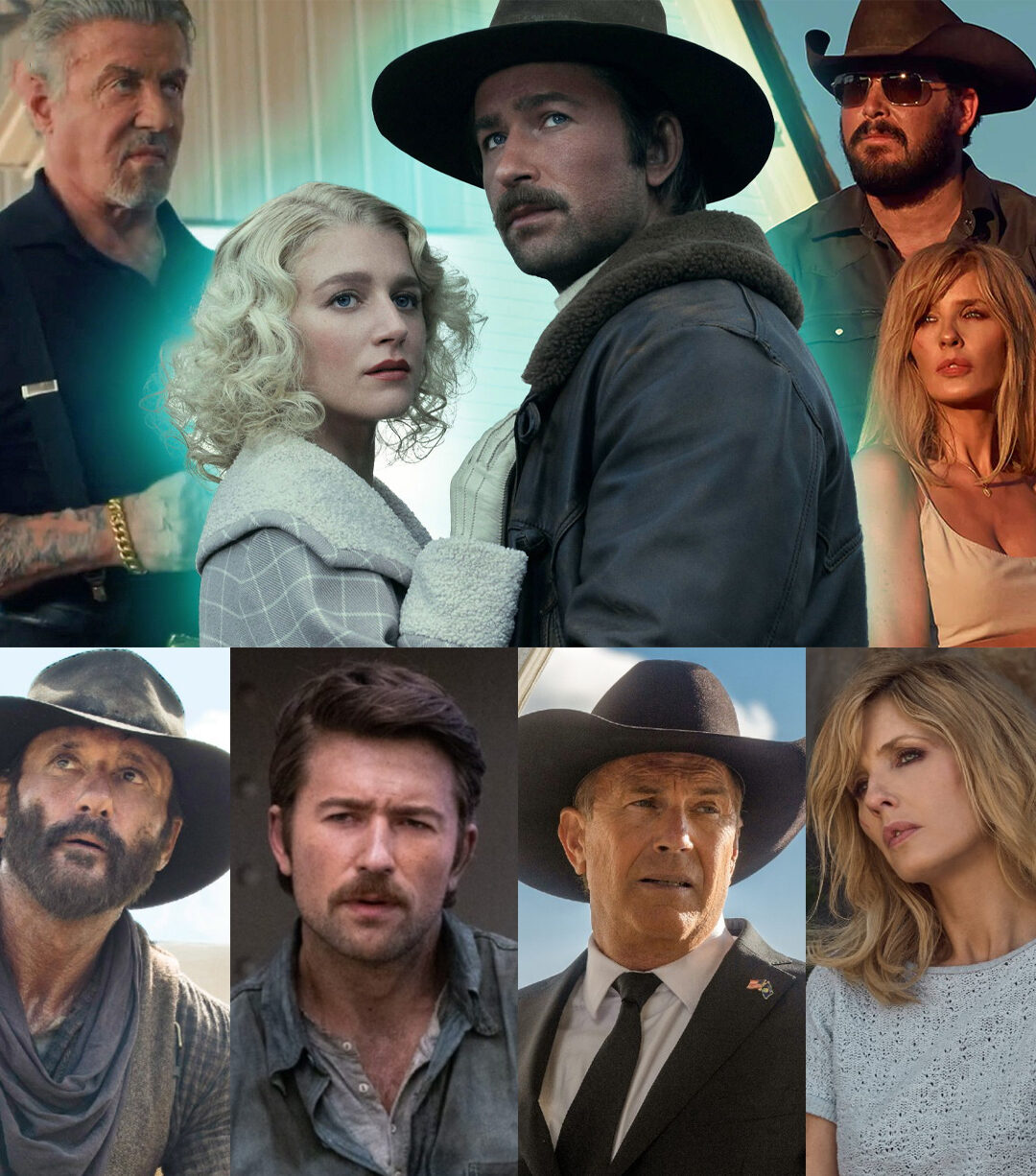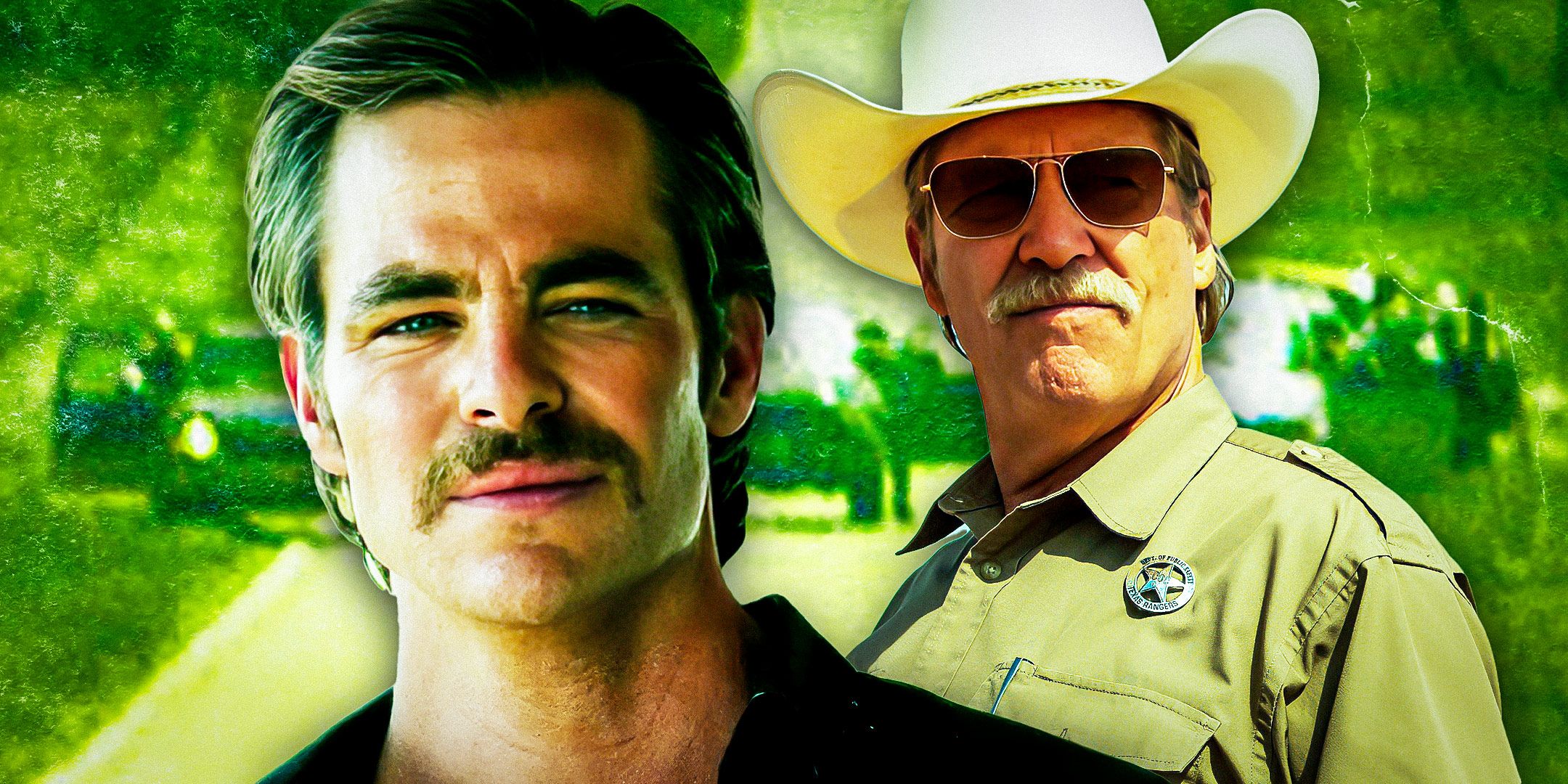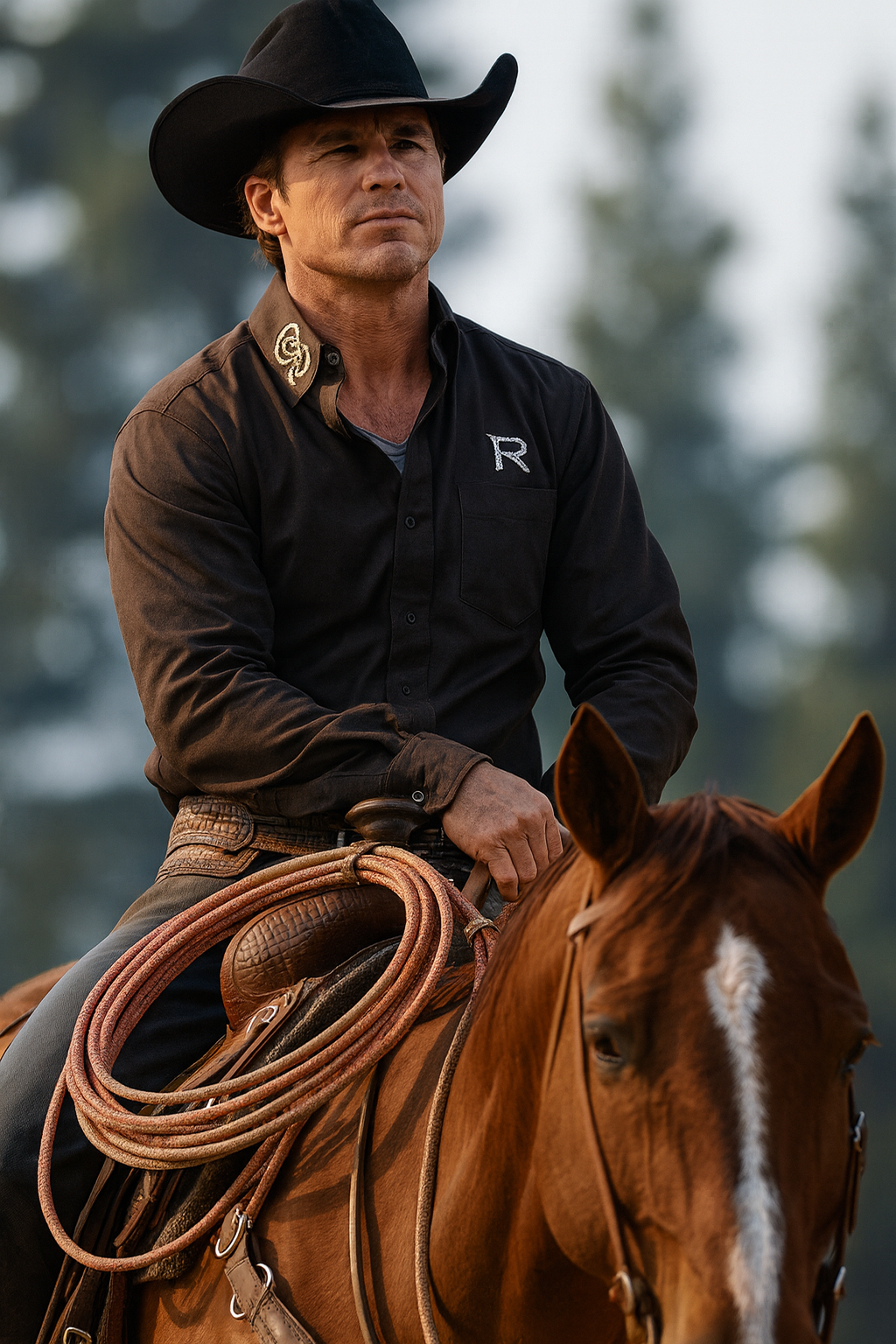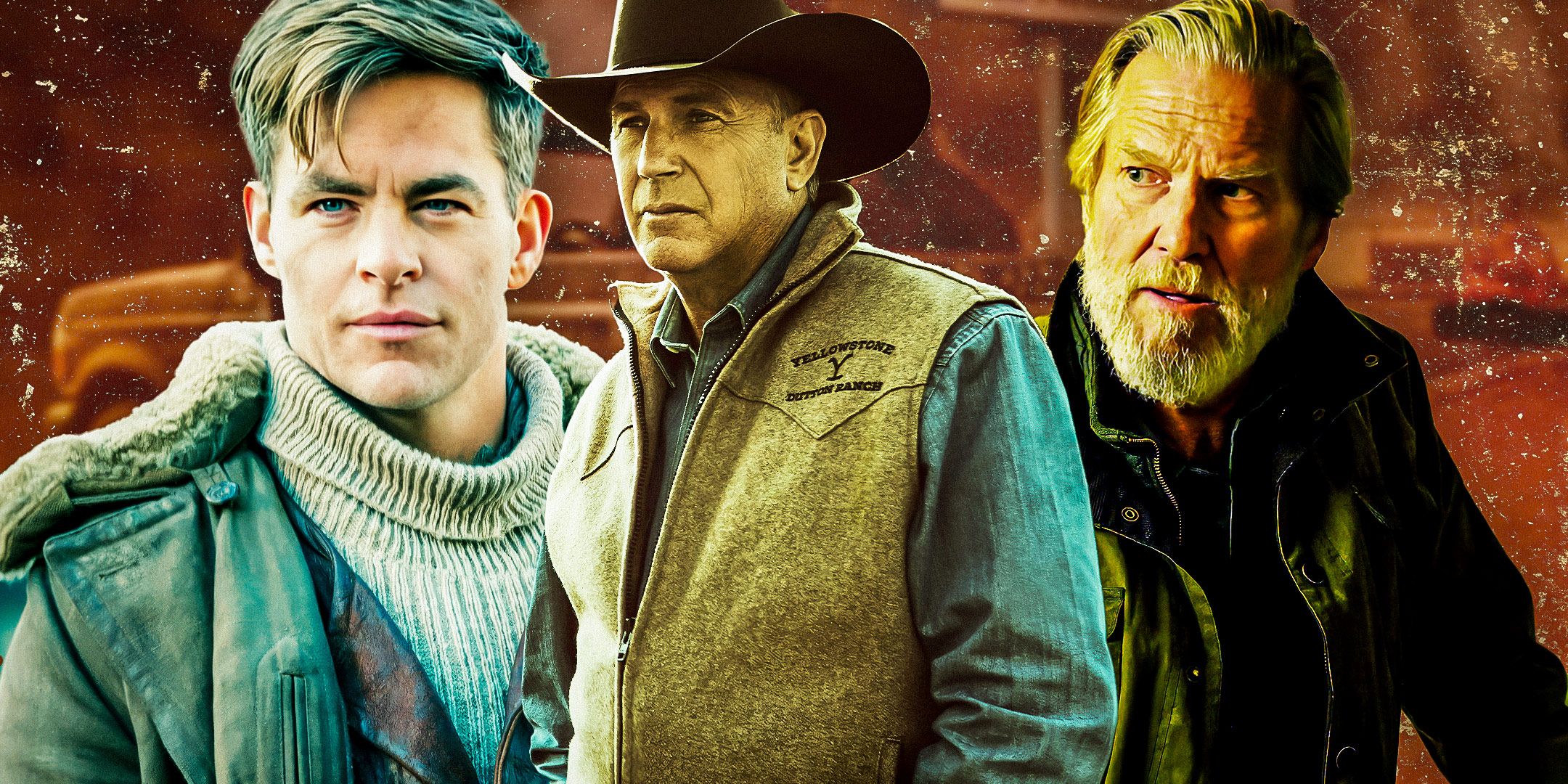
Taylor Sheridan has solidified his status as a leading voice in the modern Western genre with Yellowstone, yet it’s an earlier heist film he penned that stands as his true Western masterpiece.
Taylor Sheridan’s Yellowstone universe has propelled him to the forefront of television, establishing a franchise that has redefined the Western genre in recent years. Alongside the Yellowstone prequels, which delve into classic Western eras, the original series showcases Sheridan’s unique perspective on the contemporary Western narrative.
Before dominating television, Taylor Sheridan built his reputation as a screenwriter with several standout films. His work on Sicario demonstrates his versatility, proving he’s far more than just a Western genre specialist.
Yet, one of his finest films masterfully blends his incisive modern take on the Western genre with the gripping thrills and adventure that fans crave. While Yellowstone remains the cornerstone of Sheridan’s fame, this underappreciated movie is a must-see gem for his devoted fans to discover.
Sheridan’s Modern Western Masterpiece
Taylor Sheridan masterfully employs Western tropes to explore contemporary America in Hell or High Water, a gripping 2016 crime film that blends heist elements with the soul of a modern Western. While it delivers the thrills of a classic outlaw tale, its deeper resonance lies in its reimagining of the genre through a present-day lens.
Written by Sheridan and directed by David Mackenzie, Hell or High Water stars Chris Pine and Ben Foster as brothers embarking on a daring crime spree, robbing banks across Texas while pursued by Jeff Bridges’ relentless Texas Ranger. Like the flawed legends of the Old West, these protagonists are complex, driven by motives that blur the line between right and wrong.
The premise evokes classic Westerns, with bank robbers and lawmen clashing in a rugged landscape, yet its modern setting tackles pressing issues like economic hardship. Unlike traditional outlaws, Pine’s cautious Toby and Foster’s reckless Tanner aren’t driven by greed but by desperation to save Toby’s home from bank foreclosure, infusing the genre with timely social commentary.
Hell or High Water’s Modern Western Resonance
The fact that the brothers are paying the bank with money they are robbing directly from the banks sets Toby and Tanner up to be folk heroes of sorts, similar to the legends of the Old West. Their audacious scheme casts them as modern-day outlaws, challenging the financial institutions that threaten their livelihood, much like the rebellious figures of frontier lore.
However, like those Old West legends, the reality of Hell or High Water’s protagonists is that they are flawed. Toby, played by Chris Pine, is a caring and compassionate man seeking redemption as a father, driven by a desire to secure a future for his family. Tanner, portrayed by Ben Foster, is a supportive brother but also a volatile thrill-seeker, willing to kill anyone who stands in their way.
Sheridan uses the tropes of a Western story to examine modern America and its struggles. Specifically, the movie focuses on the hardships faced by those people who are attempting to hang on to the way of life that started out on the frontier, but has become impossible in the face of the corporations and financial institutions that take everything from them. This narrative lens transforms the film into a poignant commentary on economic disenfranchisement.
These heavy themes elevate the thrilling adventure aspect of the movie, including a climax that delivers a modern update on a classic Western shootout while also reflecting the complicated feelings of the movie. The intense finale balances raw action with emotional depth, underscoring the moral ambiguity and societal critiques woven into Sheridan’s storytelling.
Why Yellowstone Fans Should Watch Hell or High Water
Yellowstone has skyrocketed to become one of television’s most beloved series, catapulting Taylor Sheridan’s career to new heights. While his expansive TV universe keeps audiences captivated, Hell or High Water stands out as a must-watch film for Yellowstone fans, offering a cinematic experience that resonates deeply with the show’s core themes.
Though Hell or High Water centers on a gripping heist narrative, distinct from Yellowstone’s soap opera-style drama, the two share striking similarities in their exploration of land, legacy, and struggle. The film’s themes echo Sheridan’s signature storytelling, weaving a tale that feels like a natural precursor to the sprawling Dutton saga, making it a compelling companion piece for fans of the series.
At its heart, Hell or High Water follows one man’s desperate battle to preserve his family’s land for future generations, a central pillar of Yellowstone’s narrative. Additionally, Sheridan’s focus on Native American history, a prominent thread in his TV Westerns, is vividly present here. Gil Birmingham, who plays Thomas Rainwater in Yellowstone, stars as Ranger Alberto Parker, enduring racist jabs from Jeff Bridges’ Texas Ranger Marcus Hamilton while earning his respect through quiet strength.
Parker’s standout moment comes when he reflects on the cyclical dispossession of his people’s land—first by Texan settlers centuries ago, and now by modern banks seizing it from their descendants. Sheridan himself makes a brief appearance as a cowboy lamenting the hardships of ranch life, delivering a poignant line about his children rejecting the grueling lifestyle: “And I wonder why my kids won’t do this s*** for a living.” This sentiment mirrors Yellowstone’s recurring theme of the challenges in passing down a rugged way of life, with Birmingham’s casting as Rainwater possibly inspired by his powerful performance in Hell or High Water.

At the heart of Hell or High Water, one man battles to preserve his family’s land for future generations, mirroring John Dutton’s relentless struggle in Yellowstone. The extreme measures he takes and the moral complexity of his quest highlight Taylor Sheridan’s insight that modern Westerns blur the lines between good and evil, embracing nuanced shades of gray.

